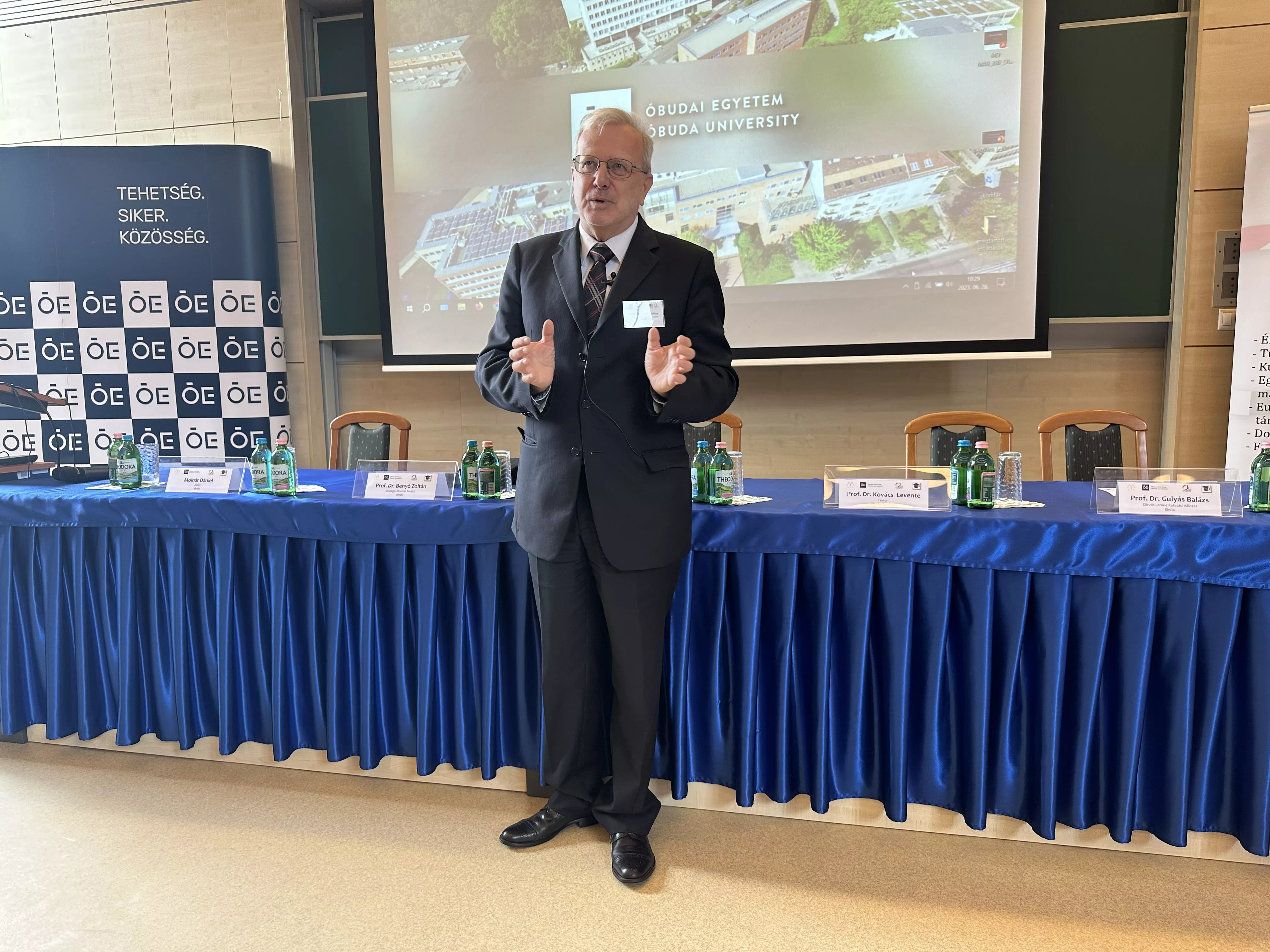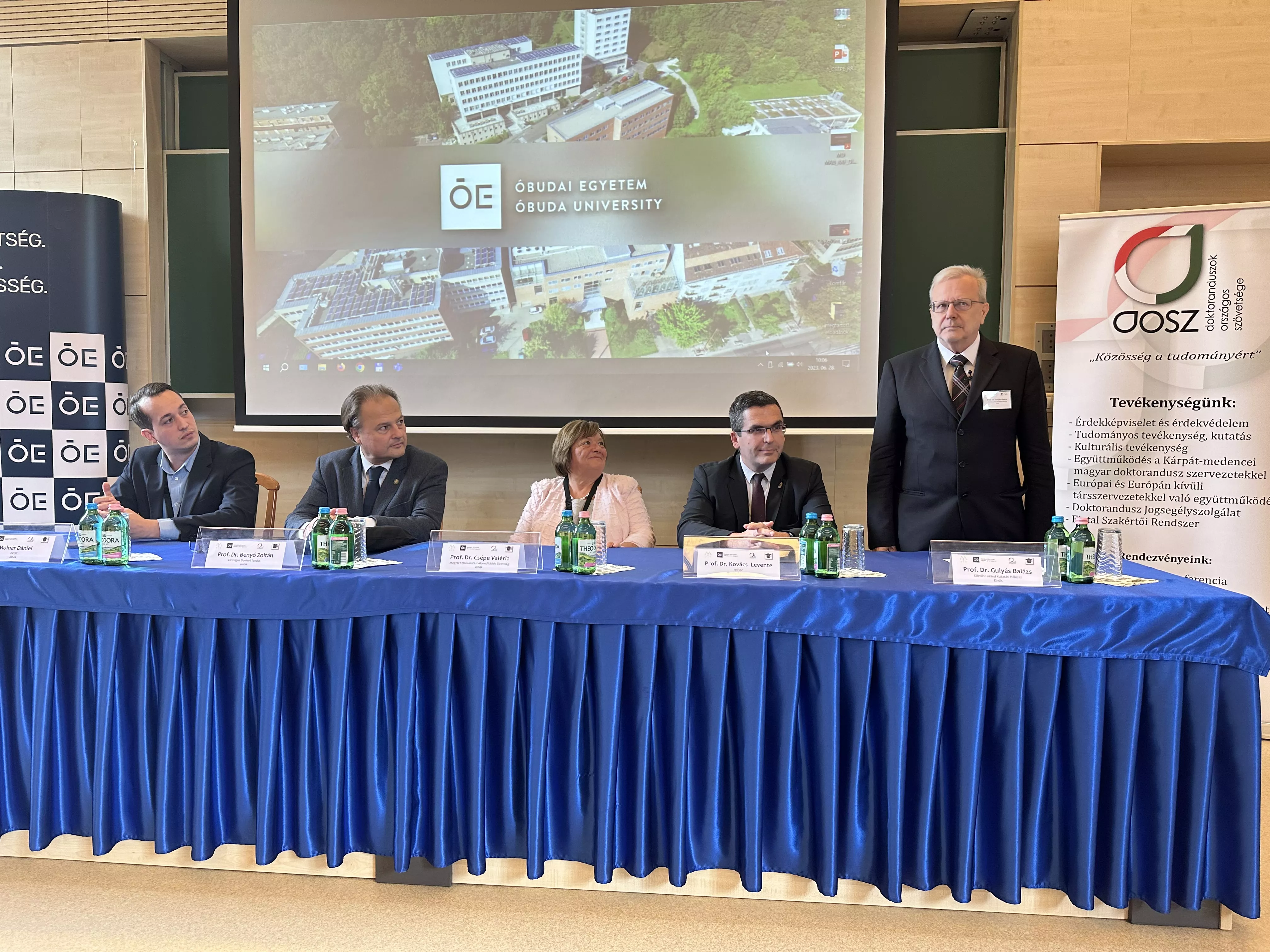The conference titled "Modernization of Higher Education: Focus on Doctoral Education" co-organized by the Hungarian Accreditation Committee (MAB) and the Association of Hungarian PhD and DLA Candidates (DOSZ) in cooperation with the Óbuda University was held on June 28, 2023. At the event hosted at Óbuda University Balázs Gulyás, the President of ELKH, shared his extensive 42-year international experience in doctoral education during, offering valuable practices that can be implemented to enhance the national doctoral program system. He also emphasized ELKH's commitment to collaborating with MAB, universities and the entire RDI ecosystem, aiming to strengthen initiatives focused on modernizing doctoral education in Hungary.

MAB initiated the conference as the consortium leader of the "Sectoral Modernization of Higher Education Programs" project in which MAB assumed the responsibility of enhancing the quality assessment tools and through this the accreditation procedures. In 2019, MAB introduced the evaluation of domestic doctoral schools based on the ESG (Standards and Guidelines for Quality Assurance in the European Higher Education Area). The data-driven analysis of the evaluation tool was entrusted to DOSZ, the primary stakeholder representing doctoral education, and the conference was structured around the presentation of this analysis. Considering the event's theme, MAB found it important to engage ELKH, an organization dedicated to the effectiveness and quality of doctoral education.

President Balázs Gulyás began his presentation by summarizing his own experiences as a student and later as a professor in various European countries and Asia, including the Catholic University of Leuven in Belgium where he obtained his PhD, the Karolinska Institute in Sweden, and finally the Nanyang Technological University in Singapore. Across all these programs, he emphasized the consistent element of high quality, fostered by stringent requirements and the involvement of international scientific circles in the evaluation process. This unwavering commitment to excellence has elevated these institutions to prominent positions globally, resulting in the widespread recognition of their PhD degrees. He then briefly discussed the role and status of PhD holders in these countries and universities. For example, at the Karolinska Institute – that is one of the world's most significant medical universities and research centers, responsible for deciding on the Nobel Prizes in Physiology or Medicine – a significant portion of the research endeavors are conducted by accomplished PhD graduates, who receive both moral and financial acknowledgment for their valuable contributions. Finally, President Gulyás shared with the audience the plan to develop a Premium League PhD program within the research network in collaboration with MAB and the universities, leveraging the successful example in Singapore.